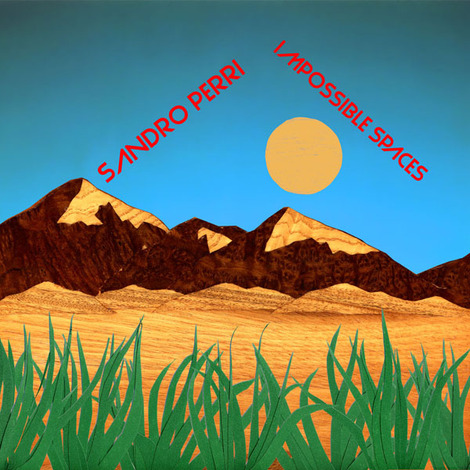We in the music criticism community spend a great deal of our time fussing over any given band’s influences. Often times at the expense of whatever group in question. The more references you throw at a group, or the more names name-checked by a band, the less able they’re able to take responsibility for their own successes and failures. Some bands ask for it, of course. James Murphy of LCD Soundsystem openly points to inspirations for individual songs and parts within individual songs. A little McCartney here a little Ferry there. You have groups like The Killers who so perfectly derive their sound from a watered down nostalgia for a certain era of music as to come off like an exhibitionist novelty act.
But then there are artists like Sandro Perri for whom flexing your self-described music-nerdery might at first glance seem like a treat, but fast devolves into meaningless generality due to the sheer variety of eras, styles, and artists on display. You could go all day listing a musician Sandro Perri sounds like and the fusions thereof, but at a certain point you’d end up back where you started without having really described Impossible Spaces at all. Yeah he sounds like a Grizzly Bear meets Max Tundra, but he also sounds like an electric Miles Davis meets Harry Nilsson. At a certain point you could get away with throwing just about anyone at the record whether it’s an obvious fixation or not.
Perri himself has only recently taken to releasing material under his own name, and prior managed a more bottled output of techno and disco under various monikers. And while Impossible Spaces is stuffed with an improv-minded accompaniment of brass, acoustic guitars, drum machines, regular ole drums, synths, piano, and on and on Perri manages not to lose a sense of electronic production arrangement that often recalls some of electro’s more eclectically schizophrenic like the aforementioned Max Tundra or Up In Flames-era Caribou (aka Manitoba). Yet at heart Sandro Perri as a moniker is meant to place singer-songwriter focus on the man at the front and the sonic implications that come with that aren’t out of place either. If there’s any aural base the record sits upon it’s perhaps that organic folky rock with a hint of electro jazz guiding the proceedings. It’s the similarly aggressive mash (versus mesh) of reference points to what Mark Hollis wanted to do with Talk Talk on Spirit of Eden and it’s similarly exploratory and unpredictable as well.
While every track on Impossible Spaces plays like a spinning wheel of names and styles, Perri doesn’t get caught worrying so much where the wheel might land next, but what he can do once he gets there. The tracks are filled with as many lazily half-lidded hooks as there are jaggedly punctuated jazz motifs that arrive by way of latter-00s avant folk’s sense of attention deficit. That might speak more to the meandering sense of purpose the musicians backing Perri are able to straddle despite an obvious virtuoso ability. Perri’s voice is a pleasantly milky and languishing croon that grounds the arrangements into the realm of singer-songwriter, which makes the instrumental excursions all the more striking for how weightless they become.
Impossible Spaces exceeds with songs that clock in at seven-plus minutes. Opener “Changes” and the ten-minute “Wolfman” are especially excellent. After five-minutes of sure-handed stop-start electric jazz exploration on “Changes” the band locks into a breezy summer afternoon groove and rides it out with a squelching rhodes-driven jam. “Wolfman” is truly a wonder. Ten minutes of stumble-upon hook after hook and doubled up choruses. But there’s the obvious centerpiece when Perri utters the titular line over a lounging brass punch that the song seems to finally settle in. As effortless as Impossible Spaces might seem, there’s a tentative balancing act at work here. “Wolfman” is perhaps the shining example as it never feels overly proggy or contrived in how it manages to place one foot after the other, making ten minutes feel like five. The musicians never get in each others’ way as everything is purposefully arranged and delivered. There’s also a symmetry to the song as if we’re treated to both the sure-footed journey in and out of an otherwise tangled locale. It’s a spatial and musical theme across the whole of Impossible Spaces and it’s perhaps the record’s most deserving triumph.

